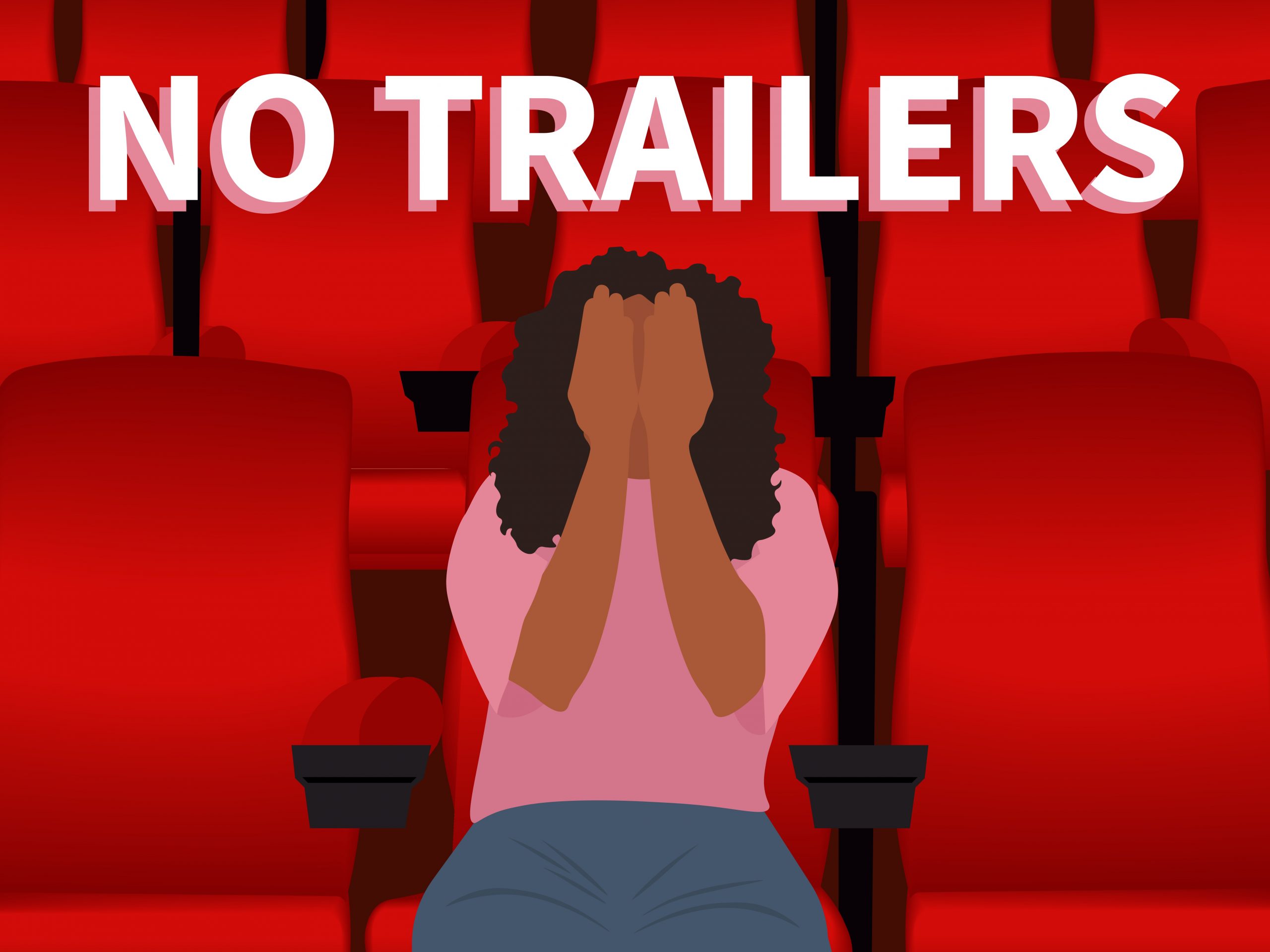Every October, the heavy-hitters from summer and fall film festivals begin their theatrical runs — and every year, I do everything I can to avoid their trailers.
The reason? Trailers care more about marketing than the movies themselves. They exist to put bodies in seats or generate streams, not to represent the film with integrity and care. They only seek to sensationalize, reveal or obscure the movie just enough so audiences will make the time to see it. Overall, a trailer is a sales pitch created by an advertising team.

Even if you recognize the intentionally manipulative techniques of trailers, interacting with promotional material sets an unavoidable expectation for what the film will be. By carefully resequencing scenes from the film, trailers often purposefully set expectations that cannot be met, for better or worse, when we eventually view the film in whole.
Take this year’s “Civil War,” for example. The trailer is almost completely action scenes followed by harrowed reactions, occasionally pulling quotes from critics who promise an “explosive” and “thrilling” film, punctuated by sounds of gunfire.
However, “Civil War” is far from the war epic its trailer makes it out to be. I found the film is mostly calm and conversational, though sometimes punctuated by brutality.
At best, this disorienting promotional technique can inadvertently reveal the distributor’s lack of faith in the film’s ability to win over audiences. At worst, it reveals a patronizing distrust in the audience to engage with a war film that isn’t all gore and explosions.
The resulting trailer is a misrepresentation of “Civil War” in its full-length form. It got more viewers in seats, but I’m not entirely convinced all those people came because they believed in the film’s quality or ideas.
Even when advertisers try their absolute best to capture a compact sample of the film, I still find the results utterly misrepresentative of the experience.
“The Zone of Interest,” released last year, has a trailer that manages to articulate the film’s eerie liminality without revealing the narrative. However, the frequent cutting and interspersed praise from critics undermine the film’s crushing nausea and haunting absence, and the trailer’s editing renders the film a horror slow burn.
Similarly, award-winning “American Fiction,” released last year, is a smart, heart-wrenching and self-reflective film underserved by its promotional materials. It uses complex, convoluted comedy to mock the role Black writers are forced into by authoritative figures in the contemporary literary world, but you wouldn’t be able to tell any of that from the trailer.
It frames the film as a non-abrasive, feel-good flick about the antics of representational politics, which is exactly the kind of film that “American Fiction” aims to skewer in its examination of the kinds of media that Black artists are often relegated to making.
Film marketing wasn’t always this way. If you look back at trailers for classics such as “What Ever Happened to Baby Jane?” or “Star Wars,” you might be shocked to find straightforward and direct accounts of the films as they are — forgoing misdirection in favor of letting the audience know exactly what they are in for.
Not every classic trailer stayed belligerently loyal to the film it was selling. Still, those that took a more abstract approach, such as Kubrick’s “Dr Strangelove, Or: How I Learned to Stop Worrying and Love the Bomb,” did not feel overtly manipulative in order to drive sales. To me, the advertising for “Dr. Strangelove” comes across almost like an anti-trailer, an overwhelming mosaic of text and clips that poke fun at the conventions of film marketing without obscuring the film’s mood or message.
In a recent New York Times article, Esther Zuckerman also observed this evolution in the formula of trailers. She argues that changing conventions, such as a lessened reliance on voice-overs, have made it harder for Hollywood studios to give a sample of the film without revealing too much of its content.
“With studios scrambling to fill theaters, they seem to be struggling to figure out what kind of trailers will draw audiences,” Zuckerman wrote. “Instead of taking chances, they are making creatively inert spots […] Mostly, no one is having any fun with [trailers] anymore.”
As I became increasingly disillusioned with the institution of trailers, purposefully avoiding them drastically altered my viewing experience for the better. My trips to the movie theater to see new films now feel more personal and authentic.
Most importantly, my impression of a film is no longer disrupted by misleading or pervasive marketing. My enjoyment of a joke is neither flattened by overexposure to it in trailers, nor is a dramatic revelation less commanding because it is teased in the marketing. Even the occasional ambiguity that comes from going into a film blind is welcome because I get to experience its complete, unadulterated authenticity.























































































































